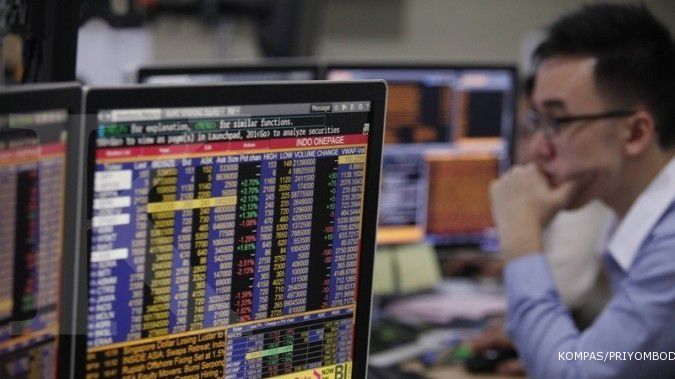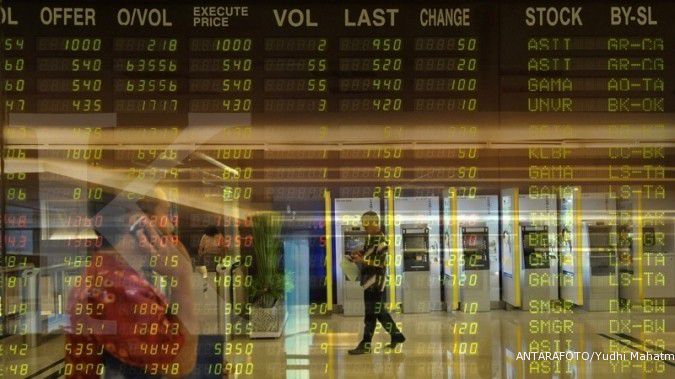As the alarm rings out over the worsening of key economic indicators, the government will be forced to change its course and focus on maintaining the stability of the economy at the expense of growth.
A record current account deficit that has recently wreaked havoc in the financial market, coupled with already soaring inflation and a higher benchmark interest rate, have raised questions over the credibility of the government in sustaining economic growth of above 6 percent.
World Bank managing director and former finance minister Sri Mulyani Indrawati said the challenge of keeping key macro-economic indicators within range was so great that it would force the government and the central bank to readjust their policies.
“Given the recent challenges, this may be the first time in several years that Indonesia will have macro-economy issues as its dominant concern,” reform icon Mulyani told The Jakarta Post recently. Mulyani said that for the last three years Indonesia had enjoyed a stable and sound macro-economic environment that enabled policy makers to focus on accelerating growth through infrastructure and aggressive fiscal spending.
“But now, the administration only has around one year left, which should be spent focusing on leaving a sound economic legacy. This will obviously require more ambitious anticipative policies,” she said.
Mulyani’s suggestion echoes that of Bank Indonesia (BI) governor Agus Martowardojo, who said in late July that the country “must grow below 6 percent” to avoid risks stemming from skyrocketing inflation, the weakening of the rupiah and continuous deficits in balance of payments.
Amid the persisting turmoil in the financial market that saw the rupiah plunge to Rp 10,504 against the US dollar on Tuesday from Rp 10,451 on Monday — as quoted from the central bank’s benchmark Jakarta Interbank Spot Dollar Rate — government officials have yet to issue any statement on the measures they would take to ease the pressure.
Finance Minister Chatib Basri reassured the public on Tuesday that “everything would eventually be OK”.
Vice President Boediono held an emergency meeting of the economic team late on Tuesday, but no outcome was reached. President Susilo Bambang Yudhoyono is scheduled to hold an impromptu Cabinet meeting on Wednesday to discuss the issues.
“Any policies taken to boost stability can only lead to lower growth. But this is necessary to keep the economy stable,” said Gadjah Mada University economist Tony Prasetiantono.
In his speech on the 2014 state budget projection and target before lawmakers on Friday, Yudhoyono remained committed to an economic growth rate of above 6.2 percent this year and next year despite earlier forecasts from BI and the World Bank of lower growth.
Jitters over the macro-economic indicators triggered another sell-off in the stock market on Tuesday, as the Jakarta Composite Index (JCI) closed down 3.21 percent at 4,174.98.
During the second session of trading the JCI plunged by 5 percent before easing back, as investors, particularly state pension funds PT Jamsostek and PT Taspen, took the opportunity to purchase stocks at cheaper prices.
“The ease is not an indication that the index is at a turning point,” said Fakhrul Fulvian, a research analyst with Panin Sekuritas. “Pressures in the market remain, as can be seen in the still soaring yield of the government’s ten-year bonds.”
According to figures from the Inter Dealer Market Association quoted by Bloomberg, the yield of the government’s bond due in May 2013 jumped nine basis points to 8.46 percent on Tuesday, the highest level since March 2011.
Amid the turmoil, the Finance Ministry on Tuesday pocketed Rp 1.54 trillion (US$146 million) from selling Sukuk (Islamic bonds), slightly above its target of Rp 1.5 trillion.
Bahana TCW Investment Management economist Budi Hikmat said the stock market was taking a beating because of seasonal sentiment — which is always lowest in August — and worries over the current account deficit, which had topped $9.8 billion or 4.4 percent of the gross domestic product (GDP).
“People are not happy with the country’s macro-economic management. People are worried that we will be the next India with a huge trade and fiscal deficit,” Budi said. (Rendi A. Witular and Tassia Sipatuhar/Raras Cahyafitri)
/2013/04/11/1411464450.jpg)














